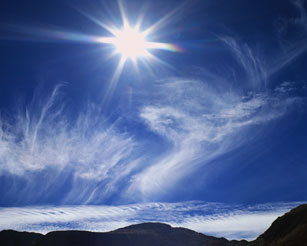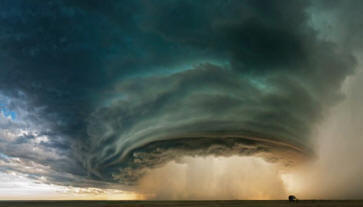
 |
|
|
tomorrow's challenge today Patron Madonna not for profit organisation, please support this site |
|
The Impact and Effects of
Climate Change |
||
|
what is what are greenhouse gases
causes
|
Page Contents |
|
| An Overview of the Impact of Climate Change
The 2012 Climate
Change Conference in Doha has reached its 18th year and reality has
prevailed; climate change is no longer a futuristic problem, it is a
present problem. Global warming as the cause of climate change is having an effect on the global climate. Scientists have noted rises in average temperatures across the world in the Earth's atmospheres and in the world's oceans near the end of the 19th century however the biggest increase in the earth's surface temperature has been in the 20th century. Temperatures have risen by 0.8 C (1.4 F) with about 66% of this increase happening since 1980. The Intergovernmental Panel on Climate Change (IPCC) in their 2007 Fourth Assessment Report (AR4) indicated that during the 21st century the global surface temperature is likely to rise a further 1.1 to 2.9 °C (2 to 5.2 °F) for their lowest emissions scenario and 2.4 to 6.4 °C (4.3 to 11.5 °F) for their highest.
Once there were talks about the probability of global warming causing glacier retreat, rising sea level and increased in global surface temperatures, now these have been confirmed with occurrences of super storms, increased cyclone activities, melting glaciers, droughts and floods. However, the impact of climate change goes deeper. Not only are we subjected to the inconvenience of extreme weather changes, our livelihood, wellbeing and surrounding ecosystem is affected too. So, what are the effects of climate change?
The Effects of Climate Change on Weather Extreme Weather Conditions Overview One of the impacts of climate change is that extreme weather activities caused by global warming have now become more widespread in recent years. Writing in the
The Guardian, Connie Hedegaard, European Commissioner of
Climate Change believes their is clear evidence that extreme weather conditions
are
becoming the norm. She says climate change and weather extremes are not
events which are going to happen in the distant
future. Weather extremes such as heat waves, floods, droughts and
wildfires are the new certainty in an ever warming world. At one time
they were simply one off episodes. Scientists have been warning for
years that as the planet heats up, we will have to deal with more
severe, more changeable, more unpredictable weather. The evidence is
mounting that
human-caused warming is pushing normal
warming effects to extremes. In 2012 reports of extreme weather came flooding in some of unparalleled scope and severity. The United States had one of the warmest years on record with many of the predictions by Climate Scientists now becoming a reality. Some US cities sweltered in the heat with temperatures of 35 C (95 F) or even hotter. There was also widespread flooding and drought all indications of climate change. Record melting of the ice in the Arctic Ocean. U.S. cities baking at 95 degrees or hotter. Widespread drought. Flooding. Storm surge inundating swaths of New York City. Record high temperatures were recorded in central and eastern Europe and the UK had the wettest summer. In 2011, the UK had the 2nd warmest November since their weather records began 100 years ago. The year 2012 also saw the heaviest rainfalls in Northern India and the Philippines and the most severe droughts in the US and East Africa. But one of the biggest concerns in 2012 was the impact of climate change and the development that the top of the world was melting. The Arctic Circle ice shrank. Michel Jarraud, of the World Meteorological Organization said " it went below 18 percent the previous record low. He also said 97 percent of the surface ice sheet in Greenland had undergone some melting and would amplify global warming. Also in Greenland, 97 percent of the surface ice sheet had some melting. Changes in the Arctic alter the rest of the world's weather and "melting of the ice means an amplifying of the warming," Jarraud said. James E. Hansen of the NASA Goddard Institute for Space Studies delclares, "My projections about increasing global temperature have been proved true. But I failed to fully explore how quickly that average rise would drive an increase in extreme weather".
Their are two well defined factors that contribute to sea level rises. The first, thermal expansion, warms the ocean water which in turn expands. The second factor is the major store of water on the land in the form of glaciers and ice sheets. Rises in sea level are clear evidence that the climate has recently warmed and is human induced (anthropogenic) namely in the 20th century. Intergovernmental Panel on Climate Change (IPCC) 2007 report projects, sea levels will rise a further 18 to 59 cm (7.1 to 23 in) during 21st century. These figures do not include the full effects of climate change on changes in ice sheet movement. Recent projections by the US National Research Council (2010) indicate possible sea level rises in the 21st century between 56 and 200 cm (22 and 79 in).
Hurricanes exacerbated by rising sea level have developed into stronger and wetter storms causing mass devastation to lives, homes and infrastructures. Flooding across agriculture lands destroy crops, livestock entrapped in such conditions die from starvation. Jean-Pascal van Ypersele, the vice chairman of the Intergovernmental Panel on Climate Change believes that hurricane Sandy was not a coincidence and was just a sample of the extreme weather events likely to happen in the U.S. as the world gets warmer. He also believes when stronger and more frequent heat waves and storms become part of life, people will stop asking whether global warming played a role. The impact of heat waves on climate change is not dissimilar to the devastation caused by hurricanes and floods. Heat waves contribute to drier conditions which could trigger forest fires. Heat waves have increased in frequency and severity recently. Wildfires are detrimental to all. Homes get destroyed and people suffer health problems. Some suffer from burns and injuries. Smoke inhalation can lead to respiratory problems. Wildlife is also threatened, many animals die due to the destruction of their habitat and inability to escape from the fire. Nasa Scientist, Dr. James E. Hansen warns that Global warming is responsible for the recent spate of summer heat waves. "The deadly European heat wave of 2003, the fiery Russian heat wave of 2010 and catastrophic droughts in Texas and Oklahoma last year can each be attributed to climate change". He also believes that the extremely hot summer in 2012 experienced by the United States will also be attributed to climate change.
|
||
resource
centre home
what is
climate change
what are
greenhouse gases
what
causes climate change
what is
carbon footprint
what
action can we take
![]()
![]()
![]()
![]()
![]()
![]()
![]()
©
UK 8020 CIC - A Social Enterprise registered at
Companies House as a Not for Profit Community Interest Company

 The world's leading climate science Scientists
from national science academies across the globe are now more than 90%
certain that it is principally caused by increasing concentrations of
The world's leading climate science Scientists
from national science academies across the globe are now more than 90%
certain that it is principally caused by increasing concentrations of
